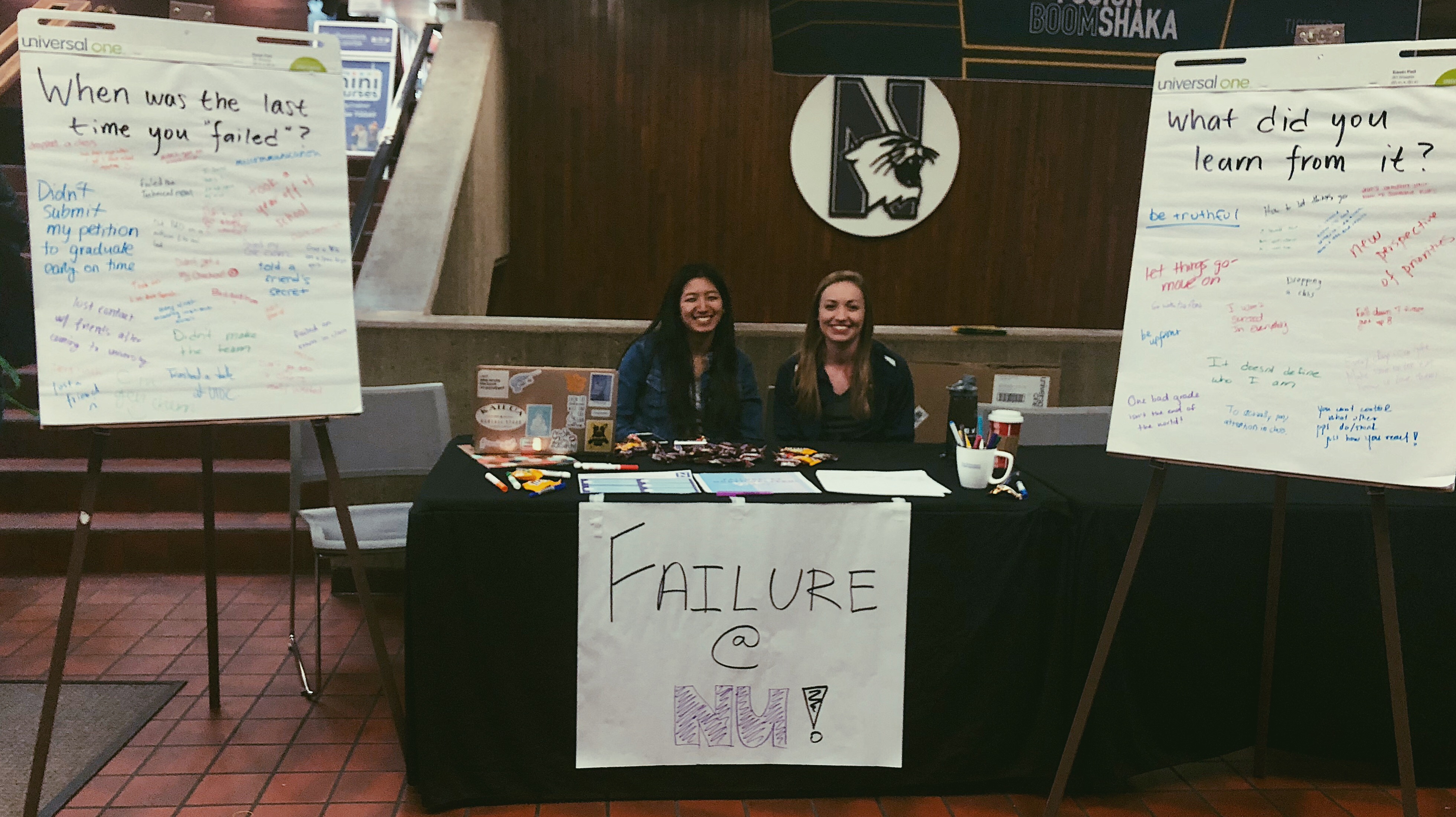Welcome to our new section, Thrive on Campus, devoted to covering the urgent issue of mental health among college and university students from all angles. If you are a college student, we invite you to apply to be an Editor-at-Large, or to simply contribute (please tag your pieces ThriveOnCampus.) We welcome faculty, clinicians and graduates to contribute as well. Read more here.
Nothing could have prepared me for the mentality of failure at Northwestern when I first arrived here over a year ago. After a difficult summer, I thought Northwestern was going to be a breath of fresh air. Although in many ways it was, I felt almost as if I was suffocating beneath the pressure of my new life, and it was taboo to talk about, which obviously didn’t help.
I thought I should have this awesome, easy transition into university. I was surrounded by people who also wanted to be here and wished to better the world or themselves through education, right? Why were we not all on the same page? Everyone seemed to be having a very smooth transition, while I was trying to climb the mountains that blocked me from seeing past the next day.
I felt like I didn’t know my new friends enough to confide in them as I struggled, but I didn’t want to worry my parents either. Instead, I found myself silently suffering and just accepting that this was my life now and if I could just do it that it would be enough.
Eventually, I found people who were willing to talk about their setbacks at Northwestern, all upperclassmen, who have wanted me to learn from their mistakes.
However, students agree the conversation about failure needs to be campus-wide. Elise Wu and Emily Rebstock set out to see if students would be willing to open up about their own failures, setting up a booth, Failure! At Northwestern, at the entrance of Norris Student Center.

They created their booth as part of a project for a theory and practice counseling class in Northwestern’s School of Education and Social Policy. They set out with the idea to talk about the stigma around failure at Northwestern and how it is widely treated by students as being nonexistent. In reality, it happens to everybody and there are more positive ways of looking at it that do exist.
“We actually brainstormed a lot about different ideas,” Wu said,. “We all pitched in really hard mostly on the failure idea because I think we felt like this is not talked about enough, how we fail so often. Like, all the time. But also how our definitions of failure are quite negative and its not seen as something we can grow from.”
Rebstock agreed. She talked about her experience with failure in basketball, on and off the court, to show how failure is experienced in all aspects of our lives, not just the academic side.
“At the root of [many problems], there are just coping patterns on dealing with failure — like overeating or not eating, for example,” she said.
This is an important point to make, as people can develop different disorders because of this fear that they are not doing enough or doing it right. This can turn into feelings that they aren’t enough.
Wu and Rebstock have learned about failure and have included a worksheet on top of their booth to help others with this problem.

“[The worksheet] comes from cognitive behavioral therapy. They use [it] to challenge automatic negative thoughts that people have,” Rebstock said.
She said it helps a person take a step back from their negative thoughts and ask themselves if they are actually true or just an exaggeration. This leads to them figure out a better way to think about these thoughts.
Wu and Rebstock provide a list of resources next to the worksheet for students who need to talk to someone including CAPS, the Care and Psychological Services. I understand how hard it is to begin to talk about failure starting with myself, let alone friends or professionals.
“At Northwestern, it’s kind of hard,” Rebstock said. “You just don’t fail. And if you do, you figure it out. You power through it.”
Wu nodded, “I would also say that even amongst my really close friends, it’s still a bit touchy.”
Wu said many of her friends took the MCAT this summer and got differing results. She said the ones that did not do as well felt really ashamed of themselves. Personally, Wu said she has no problem being honest to her friends about her struggles, but it’s other people she is worried would judge her for them.
I have found this to be true with even the most basic of things on campus, like dropping a class. My first quarter at Northwestern, I desperately wanted to drop a class, but nobody was talking about it. It seemed like everyone was taking minimum four classes, and sometimes even five or six. I felt worthless taking three. After speaking to multiple upperclassmen, I realized the reality that many people do drop classes and that it is sometimes very needed to take that load off of your schedule. The quarter system at Northwestern takes some time to get used to and it can be overwhelming when midterms start week three and feel like they never end.
When we don’t talk about needing a break, or giving ourselves one or two or even three, for four whole years, this idea of needing to “keep up” with everyone else can follow us into our post-grad years, Wu said.
“One of my [post-grad] friends is having an extremely, extremely hard time because she feels like she isn’t living up to Northwestern expectations and those of her around her,” Wu said. “She’s struggling a lot mentally with coping with having a job that she feels isn’t successful enough, but she keeps trying to portray herself as successful and all-together. She’s scared to find a different job because she feels like she won’t get it. I can totally see how her coming [to Northwestern] relates to how she’s progressed post-grad and thinking of this all-or-nothing approach to failure.”
But there are multiple ways to break the negativity around failure. It starts with self-reflection.
On either side of the booth are two big posters where people passing by are free to write on. The left poster asks, “When was the last time you ‘failed’?” and the right poster asks, “What did you learn from it?”
Wu explained how they were thoughtful in the wording of these questions. She said she felt that if they had asked “When have you failed?” instead of including “the last time” in the question, it would be maybe more abstract — where people might draw up an experience from the distant past rather than the present. They wanted to emphasize that failure happens all the time — and that’s okay.
They also put the word “failure” in quotation marks.
“We think that is up to the person to decide what is a failure to them versus what we or society believes failure is,” Wu said. “We wanted to have people at least think about a positive outcome from [their failure]. Maybe learning from it is Oh, life moves on which is great, or Oh I am not meant for this which is great too! Maybe it’s something that is not great either.”
“People can at least challenge the thought [that failure] is not an end result and rather a process,” Wu said.
Emphasis added by author Kris Gerdts
Subscribe here for all the latest news on how you can keep Thriving.
More on Mental Health on Campus:
What Campus Mental Health Centers Are Doing to Keep Up With Student Need
If You’re a Student Who’s Struggling With Mental Health, These 7 Tips Will Help
The Hidden Stress of RAs in the Student Mental Health Crisis

